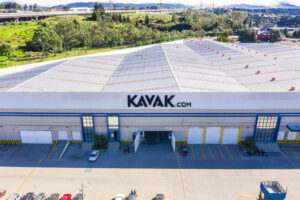
Por Mariana López
January 22, 2020
Contxto – For Brazilian fintech Nubank, January 20, 2020 will be a date to remember. As that’s the day it announced a new milestone: it has 20 million customers. This number is divided between customers that have a NuConta (the startup’s digital bank account) under their name and people registered for its annuity-free credit card.
This customer base size makes Nubank the sixth-largest financial institution in Brazil.
Related article: Fintech Nubank acqui-hires Plataformatec and its team of engineers
It’s reported that around 50,000 customers sign up for one of Nubank’s products every day. And the fintech hopes to close this year with 30 million customers (that’s a 50 percent jump!).
As for future plans, the unicorn will further develop its “Empréstimo Nubank,” a personal loan product. In addition, it wants to work on its PJ Account, a digital bank account aimed at small businesses which was still under prototyping as of last October.
It will prove interesting to see if PJ account is hot the way NuConta is.
For Cristina Junqueira, Nubank’s co-founder, this milestone is much more than just a number.
“Reaching the 20 million user mark is more than the population of many countries, and it shows that we are succeeding in reinventing a traditional market,” explained Junqueira.
And I can’t help but agree with her. Traditional banks for some time now have been feeling the heat.
Proof of that is how they’re scrambling to be on tech par with the purple-colored unicorn as well as other Brazilian neobanks such as Neon and C6.
As we’ve previously discussed, these brick and mortar banks are growing out their investment arms and acquiring fintechs for their own. An example that comes to mind was how Banco Itaú bought a majority stake in Zup last November.
Related article: Brazilian bank Itaú acquires Zup to develop new digital products and services for customers
In any case, fintech hunger for growth and customers has already spilled out of Brazil and can be seen with Nubank initiating operations in Argentina and Mexico. And the competition will only get tougher.
Related articles: Tech and startups in Brazil!
-ML

Por Yanin Alfaro
February 17, 2026

Por Israel Pantaleón
February 17, 2026

Por Stiven Cartagena
February 13, 2026